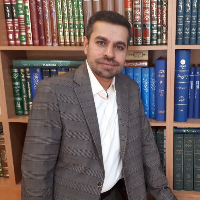Society Reformation Criteria in Prophets’ Quranic Biography
Author(s):
Article Type:
Research/Original Article (دارای رتبه معتبر)
Abstract:
The concepts of reform and corruption are ethical values that individuals' judgment on them will differ based on theoretical foundations and different perspectives. From one perspective, "divine governance" based on the satisfaction of the people is a criterion for individual and social reform, while in another perspective, the satisfaction of the majority of people is the criterion, even if it is not consistent with God's satisfaction. Therefore, it is necessary to discuss the criteria of reform according to the religious texts and pure reason. This research aims to explore the question, "In case of acknowledging the Prophets' duty to reform the society in terms of their declared goals, which criteria lead to the realization of their reforms?" According to the Quran and reason, the following criteria may be inferred: scientific, intellectual, ethical, and spiritual growth, freedom, divine governance, commitment to justice law, and the expansion of rights and justice in the personal and social sphere, which ultimately lead to the welfare, prosperity, dignity, security, happiness of society, and pure life. To judge them that to some extent they could reach these goals, their reformative actions in the societies must be evaluated. Fulfilling these criteria during the lifetime of each prophet is considered an indicator of his success, and the absence of them and the unstable situation of a prophet's society could not be considered as the criteria for later times during other prophets.
Language:
Persian
Published:
Quranic Sciences & Tradition, Volume:57 Issue: 1, 2024
Pages:
11 to 31
https://magiran.com/p2766965
سامانه نویسندگان
مقالات دیگری از این نویسنده (گان)
-
A critical analysis of Gabriel Reynolds' views on the Qur'an and its biblical subtext(Case study: The Prophet's name in the Qur'an)
*
Journal of Ketab - e - Qayyem, -
The Golden Rule of Ethics in the Religions and Its Origin In Islamic Traditions
Elahe Ahmadi *,
Religions & Mysticism,


